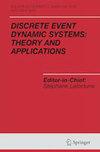《反殖民研究手册
IF 1.6
4区 计算机科学
Q4 AUTOMATION & CONTROL SYSTEMS
Discrete Event Dynamic Systems-Theory and Applications
Pub Date : 2023-10-01
DOI:10.1353/tae.2023.a909216
引用次数: 0
摘要
反殖民研究手册Chaz Briscoe(生物)Max Liboiron。污染就是殖民主义。达勒姆,北卡罗来纳州:杜克大学出版社,2021年。216页,25.95美元(pb)。ISBN: 9781478014133。Max Liboiron的《污染是殖民主义》是一本从事有意反殖民主义研究的实地手册。虽然争论重新定位了你对污染的看法,但他们的项目也涉及主导科学假设和方法论优先事项的殖民机制。从这个意义上说,Liboiron追踪了同化能力、普遍性、田野调查和s曲线等概念是如何在研究中暴露出一种权利和差异,使殖民义务合法化的。在最后一章的结束语中,Liboiron为实践反殖民科学探究提供了另一种指导。我强调“探究”,因为作者提供的协议可以被人文科学、社会科学和自然科学领域的人所采用。任何理论家都可以使用这种反殖民实践的规程。作为理论家,我们发现自己参与与人、历史和文化有关的话题、事件和问题。作为政治理论家,有必要了解权力关系。《污染是殖民主义》提供了一种方法来调查每一种关系的特殊性、责任和义务——换句话说,权力在行动中是什么样子的。第1章和第2章梳理和分析了土著科学和主流科学之间的差异和影响,而第3章提供了一种基于妥协、义务、社区同行评审、拒绝和概括的反殖民科学方法。在书的结论中,反殖民协议提供了一种历史、背景和特定地点的研究方法。对于一个强调经验主义的领域的理论家来说,我们工作的这种取向有助于为我们理论化的关系提供清晰和模型。我欣赏的是,除了文本易于理解之外,还有对资本的快速而简洁的批判,包括规模、圈地和积累等框架。这些术语表明了环境话语中关于黑人的论点。虽然这本书以纽芬兰为背景,以土著研究和移民殖民主义为中心,但我在种族资本主义的框架内观察到了类似的动态。这一分析体现了对资本主义话语和抹除模式的抵制。相比之下,一些环境话语侧重于保护,这往往不能满足无处不在的环境问题,特别是在黑人社区。因此,马克思主义作为一种方法允许读者通过抽取的系统关系来思考,正如文本所倡导的那样,坚持在环境问题的规模上解决问题,诚实地对待主要污染者和主要污染的受害者。《污染是殖民主义》在阐述西方科学与反殖民主义之间的基本争论方面的能力飙升。在文章中,Liboiron讨论了本土知识体系在西方科学中的地位。我发现主导科学令人厌恶,特别是因为它对科学普遍主义的承诺。通过对土地关系和地点研究的讨论,Liboiron展示了特殊主义的价值。当我阅读这篇文章时,它对多个领域的广泛适用性和共鸣,包括对资本的批判,以及对基于地点的研究的倡导,让我兴奋不已。这本书挑战了先前的假设,并模仿了环境问题的利害关系,迫使读者积极地考虑作者的主张,即主导科学使白人至上主义定居者-殖民地知识生产合法化。这个过程让我回答了环境话语是如何被资本塑造的问题(例如,Liboiron说明了埃克森美孚的广告活动是如何帮助否认气候变化的),并理解了生态污染的权利假设是如何让污染代表工业产权并取代地方的、基于地方的个人权利的。在我对癌症巷的研究中,我经常被Liboiron在文章中提出的一个类似的问题所困惑:是什么让社会首先理解这些污染物/有毒物质?癌症巷位于巴吞鲁日和新奥尔良之间,全长85英里,沿着密西西比河,有200多家石化工厂和炼油厂。Liboiron在《污染是殖民主义》一书中提供了一个框架来理解为什么发现和征服(和占有)对殖民主义和科学来说是必不可少的。作者叙述了科学模式如何导致抽取机制。环境科学使同化能力合法化,再现可接受的提取/允许的逻辑……本文章由计算机程序翻译,如有差异,请以英文原文为准。
A Handbook for Anticolonial Research
A Handbook for Anticolonial Research Chaz Briscoe (bio) Max Liboiron. Pollution Is Colonialism. Durham, NC: Duke University Press, 2021. 216 pp. $25.95 (pb). ISBN: 9781478014133. Max Liboiron’s Pollution is Colonialism is a field manual for engaging in intentionally anticolonial research. While the argument reorients your perspective on pollution, their project also concerns the colonial mechanisms of dominant scientific assumptions and methodological priorities. In that sense, Liboiron tracks how concepts such as assimilative capacity, universalism, fieldwork, and S-curves betray both an entitlement and differentiation that legitimizes colonial obligations within research. Concluding in their last chapter, Liboiron offers an alternative guide to practicing anticolonial scientific inquiry. I stress “inquiry” because the protocols the author offers can be employed by those in the humanities, social science, and natural sciences alike. It is this protocol of anticolonial practice that any theorist could use. We, as theorists, find ourselves engaging with topics, events, and issues connected to people, histories, and cultures. As political theorists, there is a need to be aware of the relations of power. Pollution is Colonialism provides a method of investigating every relationship for its specificity, accountability, and obligations—in other words, what power looks like in action. Chapters 1 and 2 disentangle and analyze the differences and impacts between Indigenous and dominant science, while Chapter 3 provides a method of anticolonial science based on compromise, obligation, community peer review, refusal, and generalizations. In the book’s conclusion, the anticolonial protocols offer a historical, contextual, and place-specific research approach. For theorists in a field that stresses empiricism, this orientation toward our work can help provide clarity and a model of the relations we theorize about. I appreciated that, in addition to the accessibility of the text, there was a quick and concise critique of capital, including such frames as scale, enclosure, and accumulation. These terms signal arguments made in environmental discourses about Black people. Though the text is based in Newfoundland and centers on Indigenous Studies and settler colonialism, I observe similar dynamics within the framework of racial capitalism. The analysis exemplifies resistance to capitalist modes of discourse and erasure. In contrast, some environmental discourses focus on conservation, which often fails to meet the ubiquity of environmental problems, especially in Black communities. Thus, Marxism as a method allows the reader to think through systemic relationships of extraction, as the text advocates, insisting on solutions that are on the scale of the environmental issue and honest about the primary polluters versus those who are the victims of primary pollution. Pollution is Colonialism soars in its ability to articulate fundamental contentions between Western science and anti-colonialism. In the text, Liboiron discusses the place of Indigenous knowledge systems within Western science. I [End Page 777] find dominant science distasteful, in particular, for its commitment to scientific universalism. Through discussing land relations and place-based research, Liboiron demonstrates the value of particularism. When I read the text, the broad applicability and resonance of its ability to speak to multiple fields, include a critique of capital, and advocate for place-based research excited me. The book challenges prior assumptions and emulates the stakes of environmental issues to force the reader to actively reckon with the author’s claim that dominant science legitimizes white supremacist settler-colonial knowledge production. This process allowed me to answer the question of how environmental discourses are shaped by capital (for example, Liboiron illustrates how ExxonMobil’s ad campaigns aided climate denial) and to understand how ecological pollution’s assumption of entitlement allows pollution to represent industrial property rights and supersede local, place-based individual rights. Often in my research on Cancer Alley, the 85-mile stretch between Baton Rouge and New Orleans that lines the Mississippi River with over 200 petrochemical plants and refineries, I have been puzzled by a similar question Liboiron offers in the text: what allowed society to make sense of these pollutants/toxicants in the first place? Liboiron provides a framework in Pollution is Colonialism to understand why discovery and conquest (and possession) are imperative to colonialism and science. The author relates how modes of science lead to mechanisms of extraction. Environmental science legitimizes assimilative capacities, reproducing logics of acceptable extraction/permissibility to...
求助全文
通过发布文献求助,成功后即可免费获取论文全文。
去求助
来源期刊
CiteScore
3.90
自引率
5.00%
发文量
13
审稿时长
>12 weeks
期刊介绍:
The research on discrete event dynamic systems (DEDSs) is multi-disciplinary in nature and its development has been dynamic. Examples of DEDSs include manufacturing plants, communication networks, computer systems, management information databases, logistics systems, command-control-communication systems, robotics, and other man-made operational systems. The state processes of such systems cannot be described by differential equations in general. The aim of this journal, Discrete Event Dynamic Systems: Theory and Applications, is to publish high-quality, peer-reviewed papers on the modeling and control of, and all other aspects related to, DEDSs. In particular, the journal publishes papers dealing with general theories and methodologies of DEDSs and their applications to any particular subject, including hybrid systems, as well as papers discussing practical problems from which some generally applicable DEDS theories or methodologies can be formulated; The scope of this journal is defined by its emphasis on discrete events and the dynamic nature of the systems and on their modeling, control and optimization.

 求助内容:
求助内容: 应助结果提醒方式:
应助结果提醒方式:


